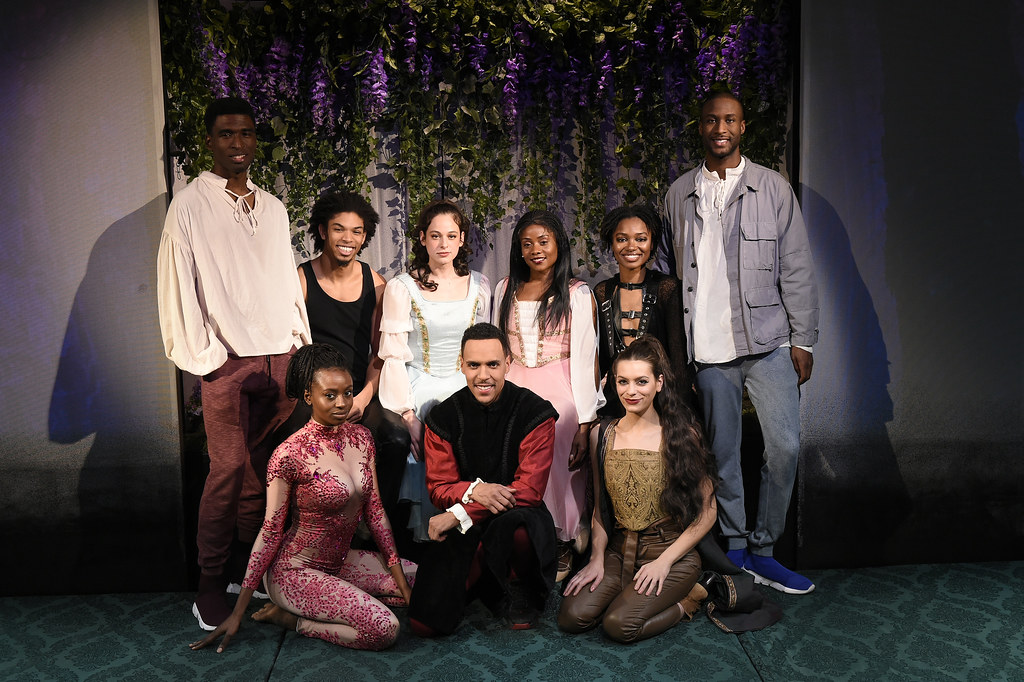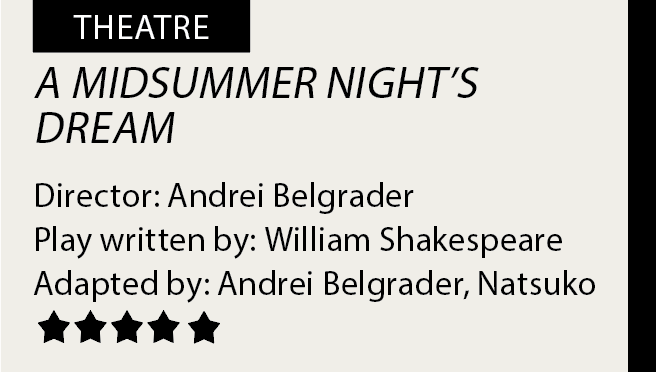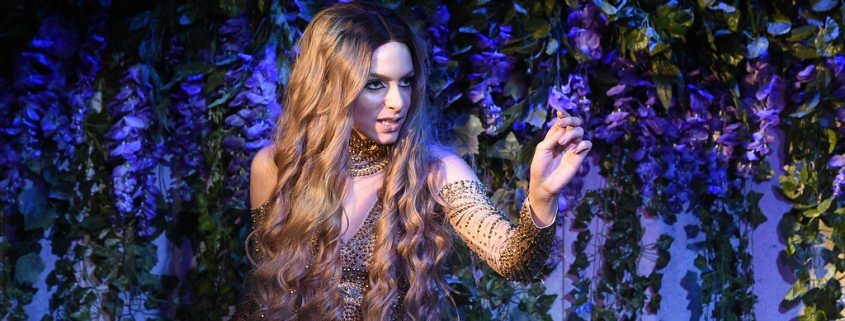REVIEW: SDA masters students offer new take on Shakespeare

At times, watching “A Midsummer Night’s Dream” is like sitting through a two-and-a-half-hour sex scene with your parents — painful, awkward and deeply, deeply uncomfortable. I have seen the play twice, across two Shakespeare festivals, and never have I felt more embarrassed while sitting next to strangers in a theater. But, while it may have been horny, chaotic and, yes, occasionally uncomfortable, it was also incredibly funny, joyous and fresh despite the script being well over 400 years old. The students of the School of Dramatic Arts’ Masters of Fine Arts program delivered the most over-the-top rendition I have ever seen. With a show like this one, I can think of no higher praise.
For those of you who did not read it in high school, “A Midsummer Night’s Dream” follows a group of unlucky mortals stuck in a fairy-infested forest outside ancient Athens, Greece. Hermia (Deja Thompson) and Lysander (Sherrick O’Quinn) are fleeing the city to get married, while Hermia’s betrothed Demetrius (Brent Grimes) tries to stop them; Hippolyta (Abigail Coryell) is after Demetrius, who is far more interested in getting his fianceé back; and a troupe of players (led by Austen Parros as Bottom) is attempting to rehearse a play for the duke.
The complicated setup basically boils down to a love triangle (or square, I guess) caused by a misplaced love spell from the fairy Puck (Nona Johnson). Most productions give the proceedings a light-hearted, rom-com vibe, which seems appropriate given the premise. But Professors of Theater Practice Andrei Belgrader and Natsuko Ohama, who adapted the play, chose to do something different: less “Sleepless in Seattle” and more “Wet Hot American Summer.”
That’s not a comparison I had expected to make when I walked into the theater, but I don’t think there’s a better one. The performances are exaggerated — the cast goes for more slapstick humor than wit or nuance. There’s a lot of falling over, pantomime fighting and more choreographed dance numbers than I would have expected (there’s only one, but I wasn’t expecting any.) It’s all loud self-caricature, which might have gotten on my nerves had I not been so busy laughing.

As in all versions, “Midsummer” folds in on itself at the end; the entire final act is occupied by a play-within-a-play, performed by the troupe of actors rehearsing in the woods. This performance, however, doesn’t just fold — it comes apart, adding new elements to the script. I won’t go into specifics here because you should see it for yourself, but it’s just as strange and funny as the rest of the performance.
The entire cast does an impressive job, especially considering they’re all performing three separate plays a week as part of their thesis project, but Parros was one of the clear standouts. He has one of the more ostentatious roles, playing Bottom as a scenery-chewing old Hollywood film star. Although hers was a much smaller role, Lea Lanoue got a lot of laughs as another one of the troupe’s inept actors.
The most spectacular performance, though, was Troy Witherspoon’s Oberon. He strutted around the stage with a sort of unnervingly quiet, laid-back anger, as though “Dazed and Confused” era Matthew McConaughey had taken a role as the King of the Faeries. His was certainly a melodramatic turn, but, unlike the rest of the cast, Witherspoon never tried for a laugh.
None of the changes — or performances, for that matter — are radically different on their own. The script is still the same, with only a few anachronistic lines added for comedic effect. The sets are non-existent, like usual, and the costumes fall within the “grab whatever you want from the rack” look of so many Shakespearean productions these days (at least the cast didn’t go for the even more overdone “vaguely military” look.)
But when taken all together, the changes add up. The jokes land more often and the lines become less stuffy. The show is grosser and sillier and, at times, dumber than any I have ever seen. And I couldn’t recommend it more.
The play runs on select nights through March 7, sharing the stage with “Father Comes Home from the War” and “Guarded,” both with the same cast.


